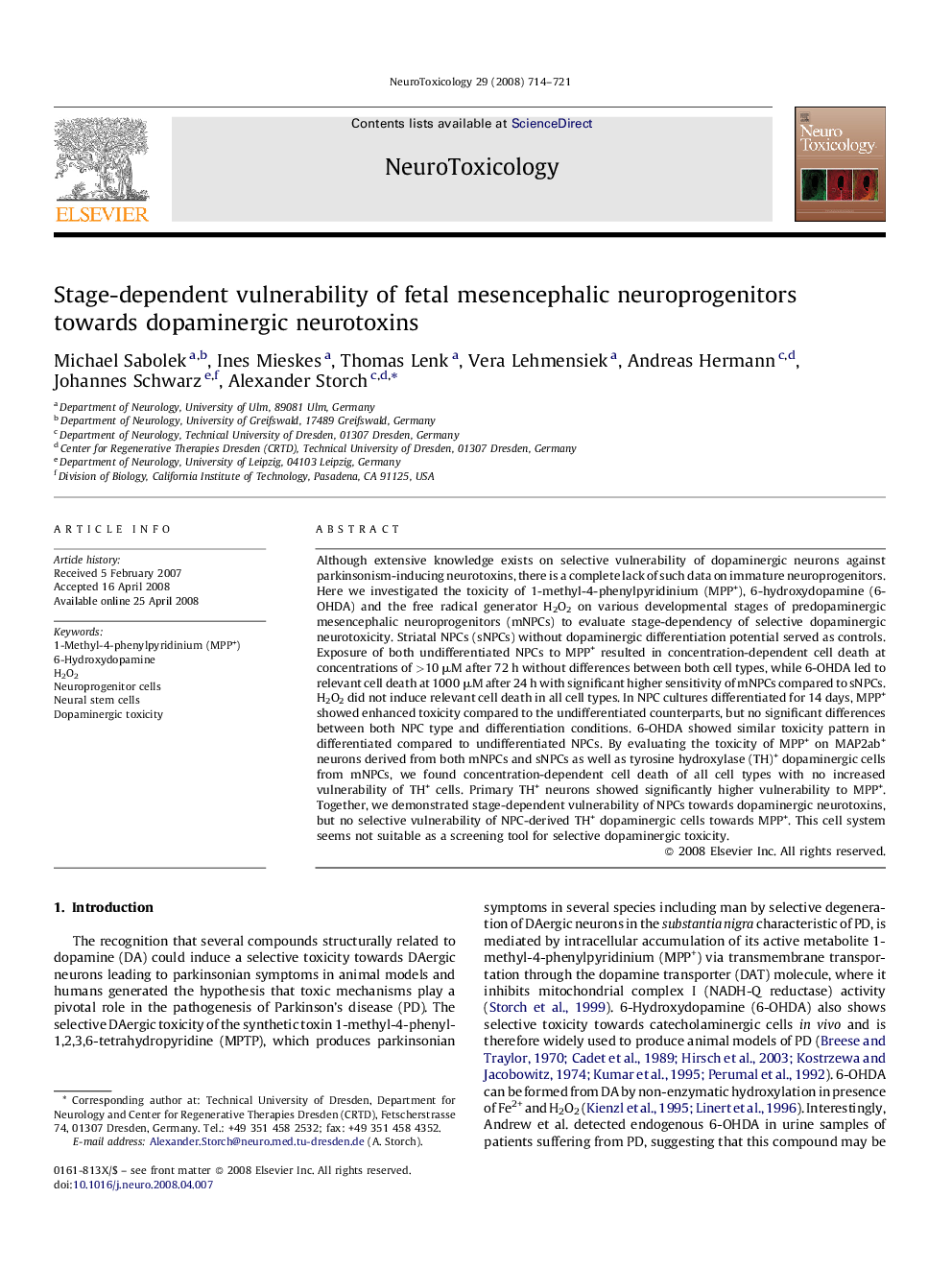| Article ID | Journal | Published Year | Pages | File Type |
|---|---|---|---|---|
| 2590330 | NeuroToxicology | 2008 | 8 Pages |
Abstract
Although extensive knowledge exists on selective vulnerability of dopaminergic neurons against parkinsonism-inducing neurotoxins, there is a complete lack of such data on immature neuroprogenitors. Here we investigated the toxicity of 1-methyl-4-phenylpyridinium (MPP+), 6-hydroxydopamine (6-OHDA) and the free radical generator H2O2 on various developmental stages of predopaminergic mesencephalic neuroprogenitors (mNPCs) to evaluate stage-dependency of selective dopaminergic neurotoxicity. Striatal NPCs (sNPCs) without dopaminergic differentiation potential served as controls. Exposure of both undifferentiated NPCs to MPP+ resulted in concentration-dependent cell death at concentrations of >10 μM after 72 h without differences between both cell types, while 6-OHDA led to relevant cell death at 1000 μM after 24 h with significant higher sensitivity of mNPCs compared to sNPCs. H2O2 did not induce relevant cell death in all cell types. In NPC cultures differentiated for 14 days, MPP+ showed enhanced toxicity compared to the undifferentiated counterparts, but no significant differences between both NPC type and differentiation conditions. 6-OHDA showed similar toxicity pattern in differentiated compared to undifferentiated NPCs. By evaluating the toxicity of MPP+ on MAP2ab+ neurons derived from both mNPCs and sNPCs as well as tyrosine hydroxylase (TH)+ dopaminergic cells from mNPCs, we found concentration-dependent cell death of all cell types with no increased vulnerability of TH+ cells. Primary TH+ neurons showed significantly higher vulnerability to MPP+. Together, we demonstrated stage-dependent vulnerability of NPCs towards dopaminergic neurotoxins, but no selective vulnerability of NPC-derived TH+ dopaminergic cells towards MPP+. This cell system seems not suitable as a screening tool for selective dopaminergic toxicity.
Keywords
Related Topics
Life Sciences
Environmental Science
Health, Toxicology and Mutagenesis
Authors
Michael Sabolek, Ines Mieskes, Thomas Lenk, Vera Lehmensiek, Andreas Hermann, Johannes Schwarz, Alexander Storch,
